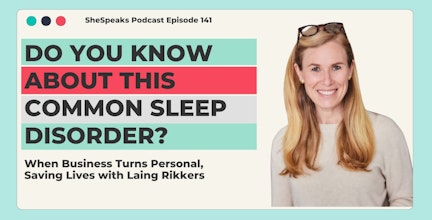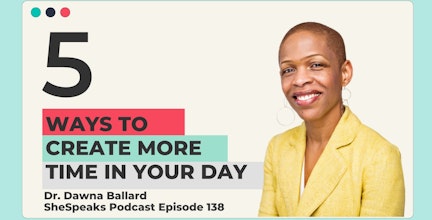Special Needs Parents: You Are Not Alone

2003 was a rough year for me. That January, we were living in a new area, away from most of my family. My husband worked long days far from home, and we had no friends or neighbors in our new neighborhood. Into this scenario, my first child was born: Amelia, a beautiful little spirit who we later learned had a form of Down syndrome called Mosaicism. She was an angel baby, rarely crying, never fussing, and she slept 6 hours or more at night, from 4 weeks on. While I should have been ecstatic, at the time I felt like Down syndrome was a life sentence, and I worried greatly her future and her health. I spiraled into depression for a long period – 8 months, at least – crying every night after she went to bed. The day I got her diagnosis, I was holding and I broke down…and so did she. This was her first real cry and it was my fault. I made a commitment then and there not to break down in front of her again.
Thanks to that commitment and LOTS of prayer from my loved ones, I made it out of depression. It’s hard to stay sad when a beautiful little girl smiles, laughs, and jumps up when you enter her room in the morning. It’s hard to focus on despair when your child is full of wonder at the world, and giggles at the slightest thing. I was lucky.
However, I’m well aware that many people are not so lucky. Having a child with special needs can be a lonely, daunting and painful experience. I remember sitting alone in my house wondering why none of my family or friends had a single child with any kind of disability. I grew angry at the voices that told me I was “chosen” and it was a gift. What kind of choice was that? How could this be a gift? Even years later, I had a hard time with friends who had typical children. They didn’t understand why their advice would not work in my child’s life, and I was too tired to keep explaining it.
I turned to blogging about my parenting journey, and in the blogosphere, I found a world of people who had kids with disabilities. I started reaching out, commenting, chatting, and making friends. I wasn’t alone anymore! It lifted my spirits to know that other parents had similar hopes and struggles raising their disabled children. Not only that, but there were resources, advice, and ideas that I had not thought of trying to help me through. I had found my tribe.
If you have a child with any kind of physical, learning, developmental, or medical disability, it’s critical for you to find support and kinship from parents who are going through the same things. It’s great if you find parents raising kids with similar disabilities, but if you are at least dealing with the common issues, there is comfort in knowing you are not alone. What are some ways you can find communities of other special needs parents?
- Get online. This is my favorite way to meet people. Social media allows us to talk instantly, whether it’s Facebook, Google +, Twitter or Skype. We always think face to face is best, but I’ve learned so much from my online friends and when I have a question or problem, I know someone will show up soon to answer me. Not only that, but online organizations can lead you to conferences and events focusing on your child’s disability. These events are worth the travel to connect, learn, and find even more resources for helping your child.
- Reach out to your school. I met another parent of a child with autism who is helping me with biomedical healing at my daughter’s school. We are on the same school mailing list, and kind “ran” into each other there. She’s been a great wealth of information. In turn, I invited her to a few of my online groups, and now she helps people there as well.
- Reach out to your faith or local community group. What would I do without respite care? I have no idea, but it is a beautiful service that so far two churches have provided to take my girls, make sure they have fun, and allow me to have some quality time with my husband. Look at local faith-based organizations, community centers, and universities and hospitals to see if they are providing programs, support groups, discussions, conferences and other events focusing on disabilities.
- Reach out to your service providers. The people providing services to your family - school psychologist, your child’s therapeutic aides, your pediatrician - should have a list of resources in or around your area. For example, within 30 minutes of my home, there is an ARCH organization, which provides help for my daughter with Down syndrome, and an Autism Resource Center, who helps my little one. These organizations helped me find summer camps for my kids so they don’t have to stay home when school is out!
All these resources can (and will) overlap. You’ll find something online that happens to be headquartered near you, or you’ll reach out to a service provider that sends you to a specialty online group just for your child’s disability.
The challenges of being a special needs parents can be tough, but they shouldn’t be faced alone. Get out there and get yourself resources and support to help make it through. These resources have helped me become a stronger, calmer, and better parent, and have made me friendships I know will last a lifetime. You are not alone!










_01252024061712.jpg?max-w=432&max-h=220&fit=crop&auto=format)

_10242023164832.jpg?max-w=432&max-h=220&fit=crop&auto=format)


_08172023152001.jpg?max-w=432&max-h=220&fit=crop&auto=format)


 (6)_07082023175312.jpg?max-w=432&max-h=220&fit=crop&auto=format)
 (1)_05192023144508.jpg?max-w=432&max-h=220&fit=crop&auto=format)

 (37)_05032023114523.jpg?max-w=432&max-h=220&fit=crop&auto=format)
 (3)_04112023125932.jpg?max-w=432&max-h=220&fit=crop&auto=format)
 (36)_04272023152113.jpg?max-w=432&max-h=220&fit=crop&auto=format)